20050316-shames-mw10-collection-001
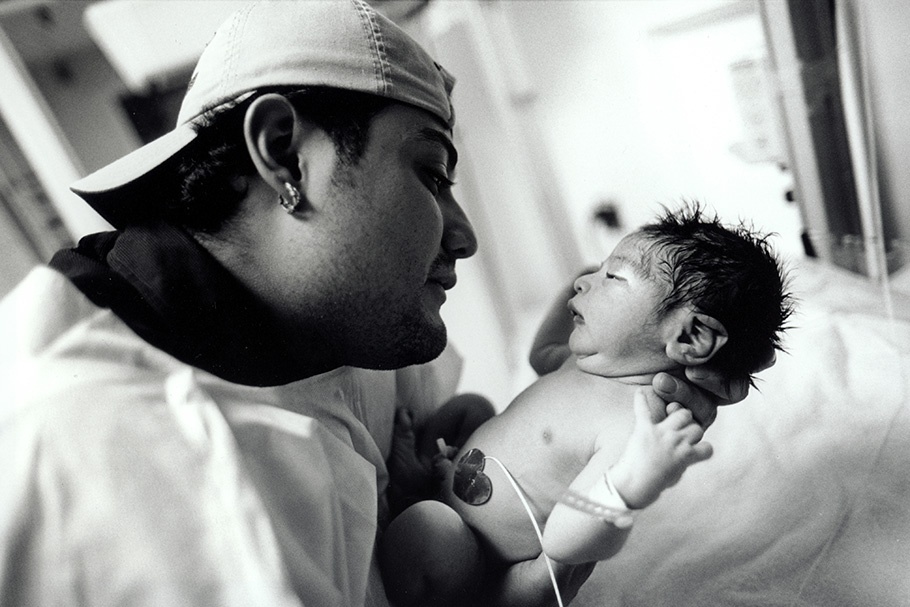
Peter Santiago holds his minutes-old son, Daniel Darnell Santiago, at the Suburban Medical Center.
(Con Los Padres at National Latino Fatherhood and Family Institute)
Paramount, California, 2001.
20050316-shames-mw10-collection-002
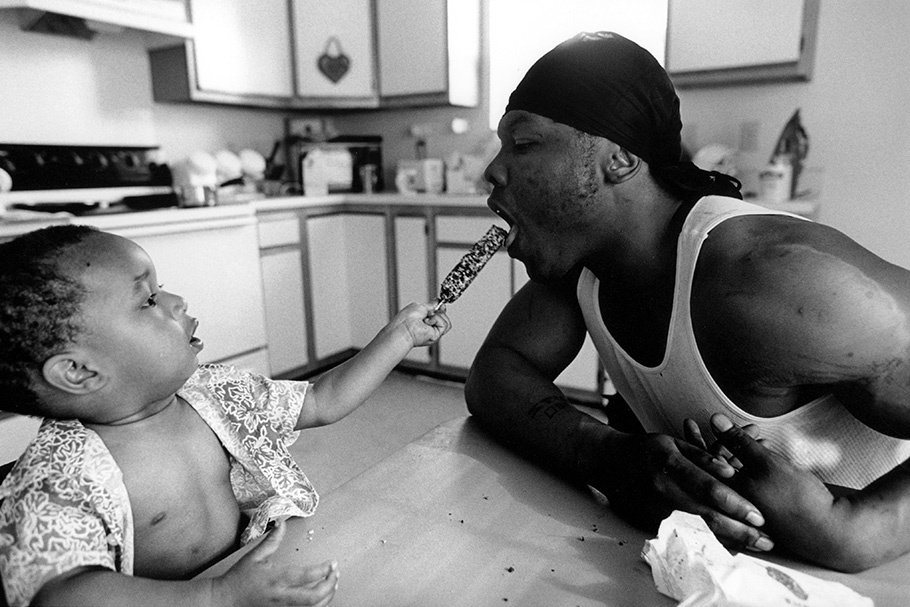
Dashawn Williams feeds ice cream to his dad Steve Dycus.
(Fathers and Families Resource Center)
Indianapolis, Indiana, 2001.
20050316-shames-mw10-collection-003
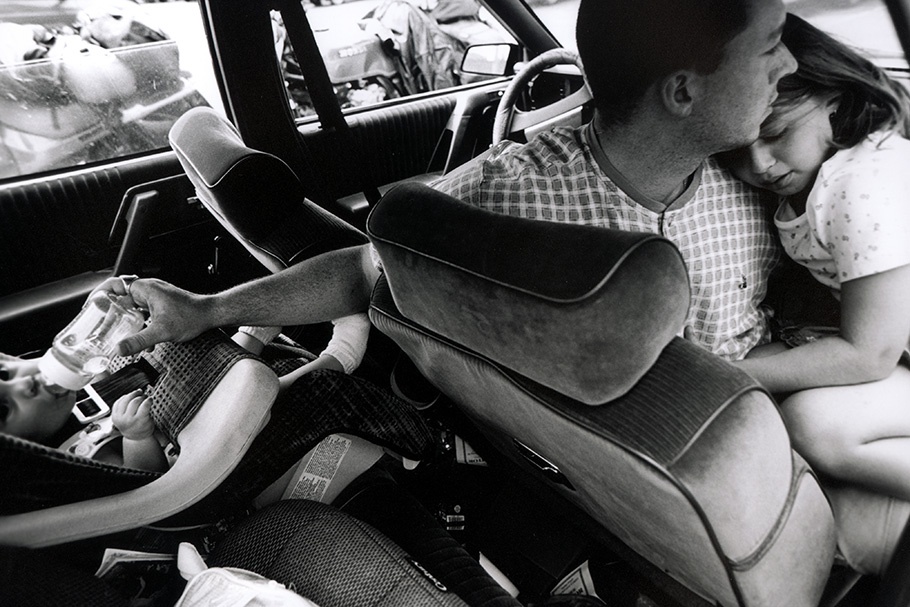
Stay-at-home dad Zach Tift comforts his daughter Maryah while feeding his daughter Morgan.
St. Paul, Minnesota, 2001.
20050316-shames-mw10-collection-004
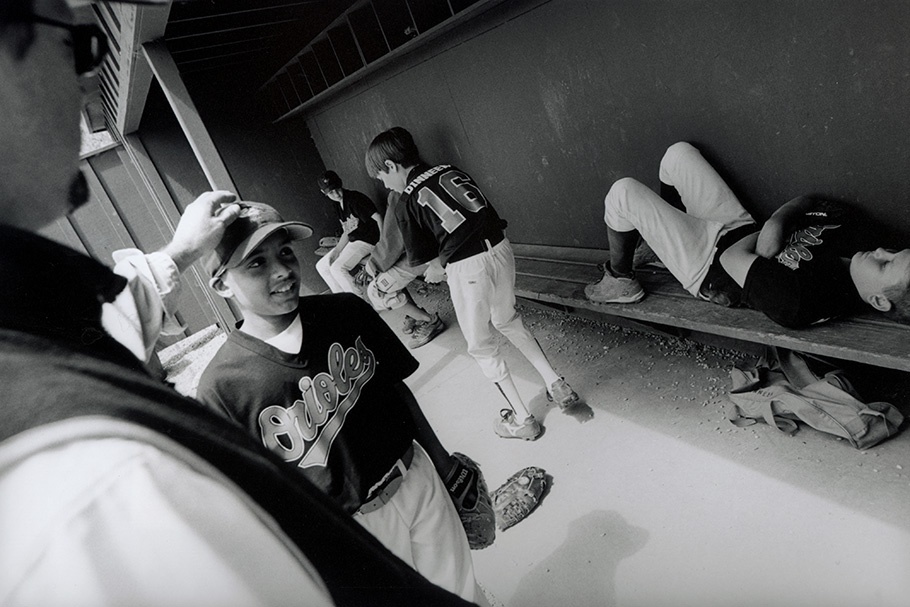
Coach and kid in dugout of Orioles at a Little League baseball game.
(Bay Area Male Involvement Network)
Nicasio, California, 2001.
20050316-shames-mw10-collection-005
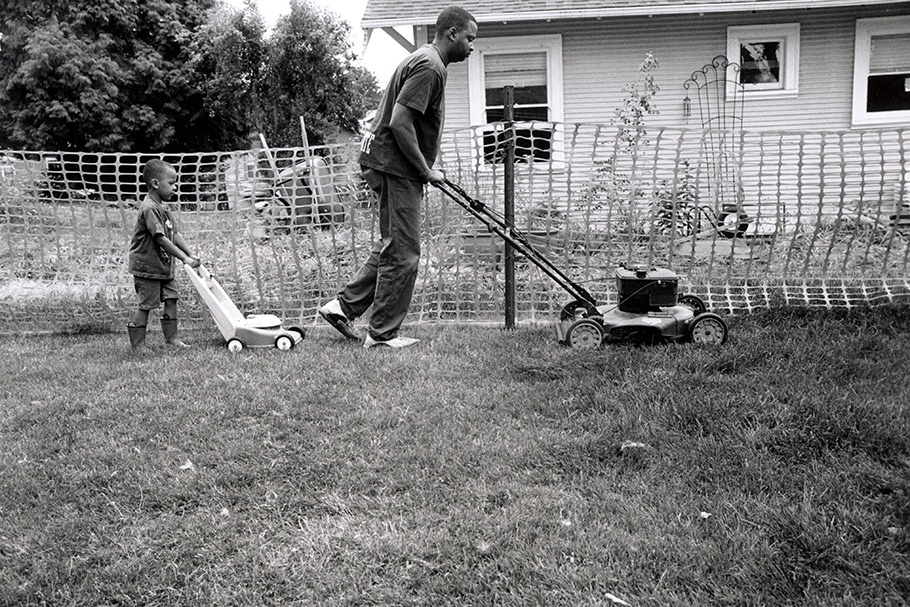
Jerrel Spires cuts the grass with his son Josiah.
(Friends of the Children)
Portland, Oregon, 2001.
20050316-shames-mw10-collection-006
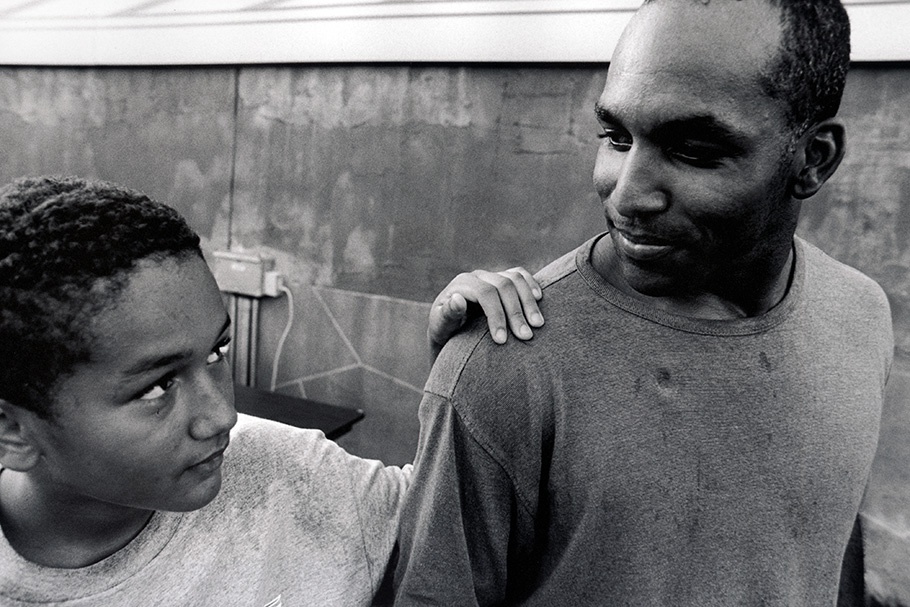
Stephan, 11, and his dad Steve Johnson.
(Meld)
Minneapolis, Minnesota, 2001.
20050316-shames-mw10-collection-007
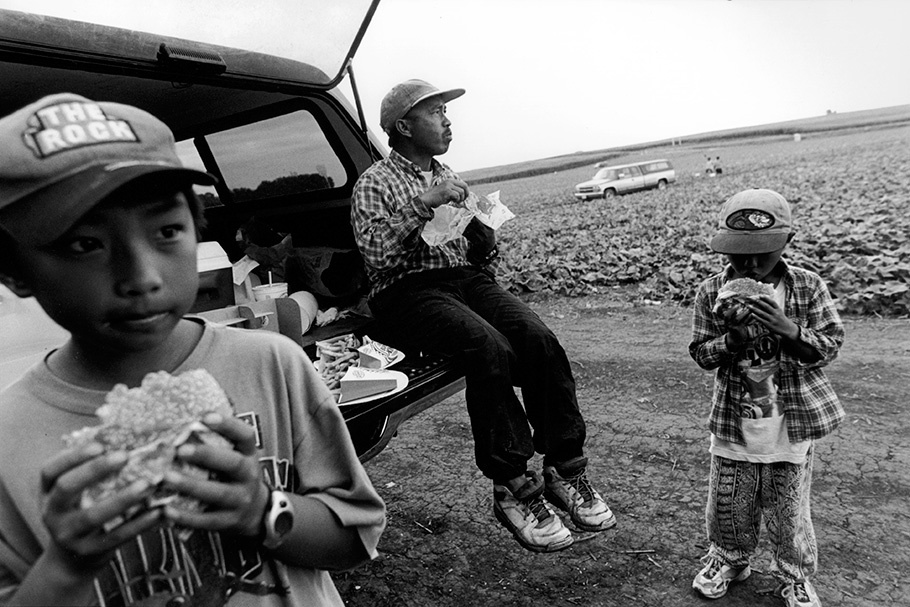
A. E. Moun, Hmong coordinator at Meld, eats dinner with his children after a day picking vegetables in the fields.
(Meld)
Franklin, Minnesota, 2001.
20050316-shames-mw10-collection-008
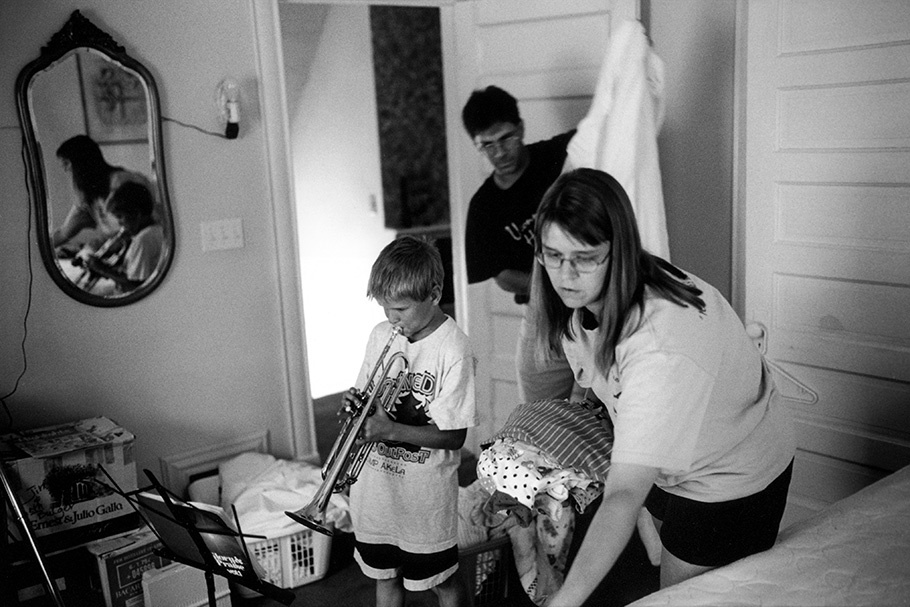
Jim and Patty Rosno fold the laundry while their son Gregory, 10, practices his trumpet.
(Meld)
Minneapolis, Minnesota, 2001.
20050316-shames-mw10-collection-009
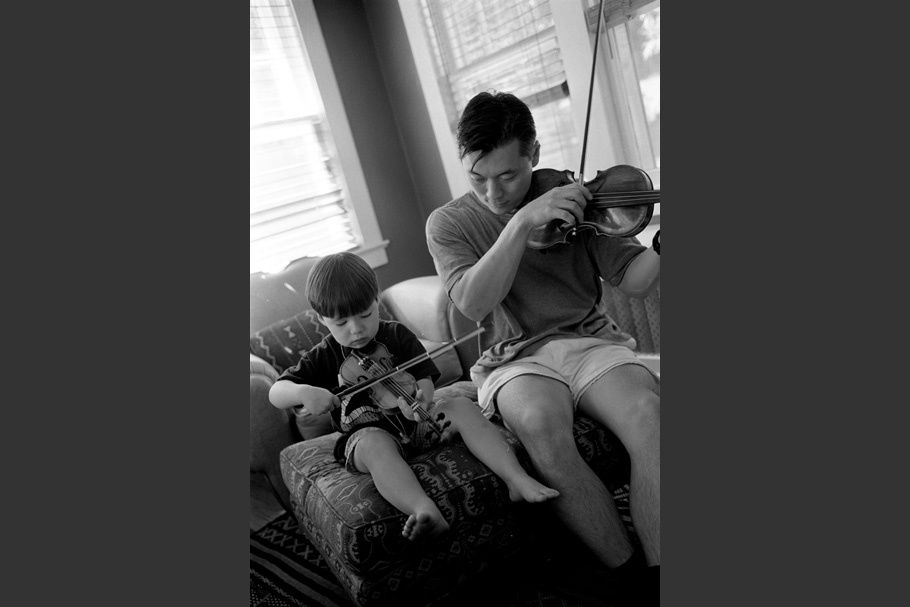
Jackson Whang, three, plays violin with his dad John. Jackson’s ancestors came to the United States in the 1600s; he is a descendent of President Franklin Pierce.
Montclair, New Jersey, 1988.
20050316-shames-mw10-collection-010
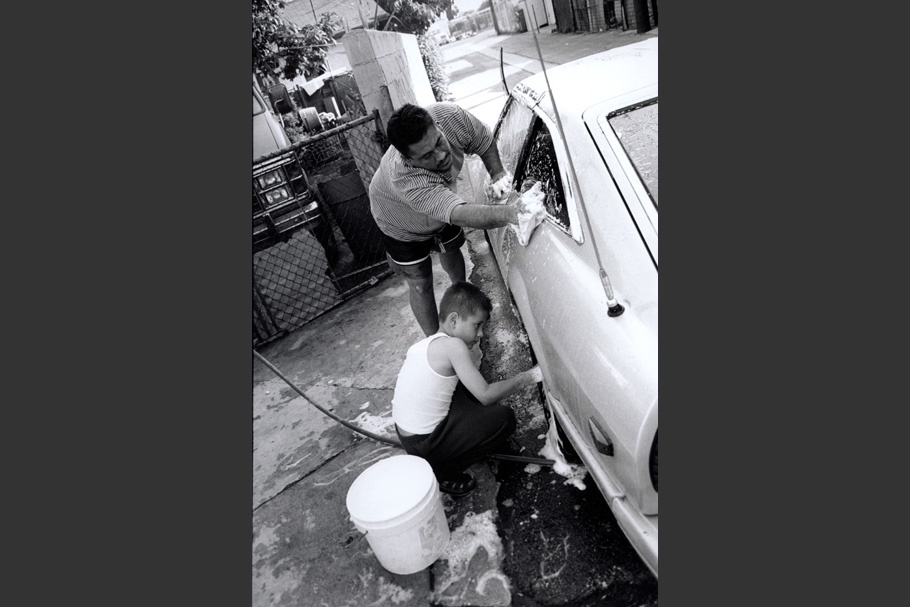
Seven-year-old Edgar Govea washes the car with his father Jose, a participant in The El Joven Noble Program (The Noble Young Man). The program, which is run by The National Latino Fatherhood and Family Institute, helps connect young men to their cultural roots.
(The El Joven Noble Program)
Bell Gardens, California, 2001.
20050316-shames-mw10-collection-011
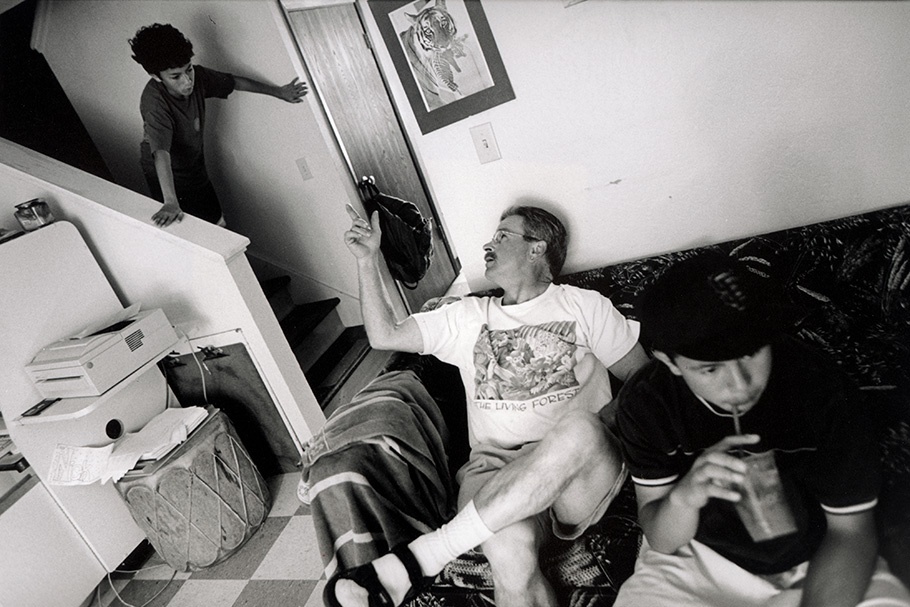
James Case disciplines Nick Warner while his son Russell watches TV. James was homeless when he met Nick’s dad, Paxton Warner, so the two men rented an apartment for their families. When James “fell off the wagon,” his son continued living with Paxton. After Paxton died in March, 2001, James cleaned up his act and began caring for both the boys.
(Bay Area Male Involvement Network)
San Anselmo, California, 2001.
20050316-shames-mw10-collection-012
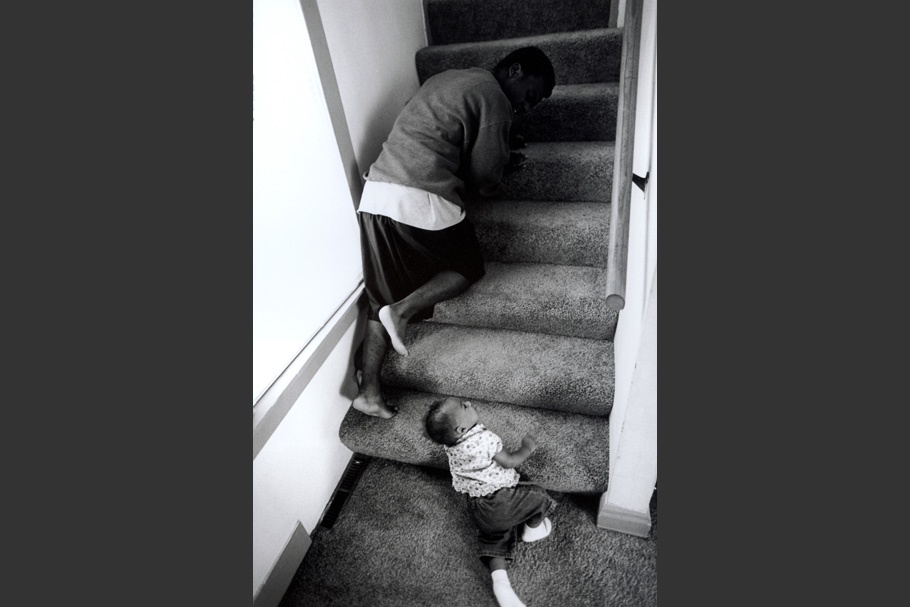
Darnell Poole, 16 years old, crawls up the stairs as his son, nine-month-old Kamari, follows.
(Meld)
Minneapolis, Minnesota, 2001.
20050316-shames-mw10-collection-013
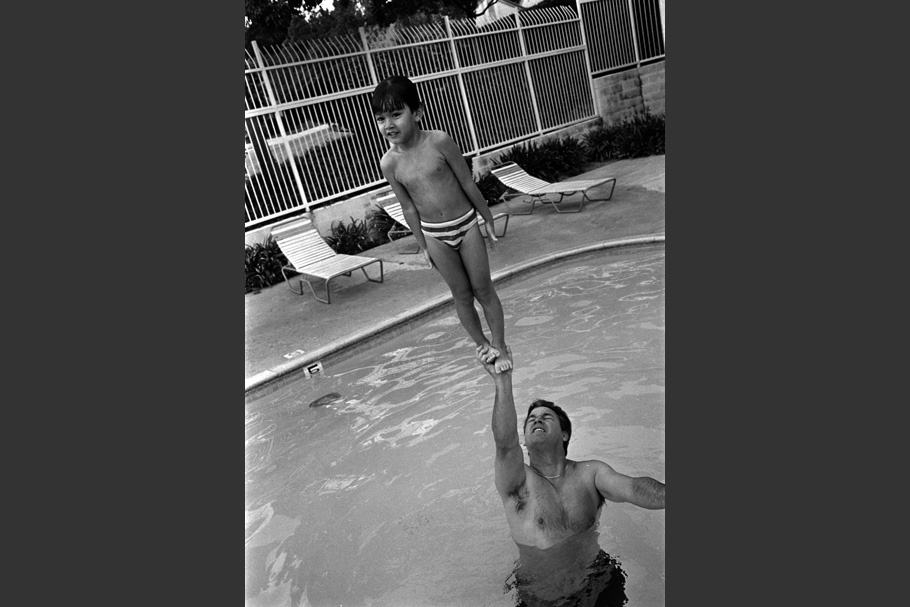
Trevor French, five, being held up by his father Craig.
La Puente, California, 1998.
20050316-shames-mw10-collection-014
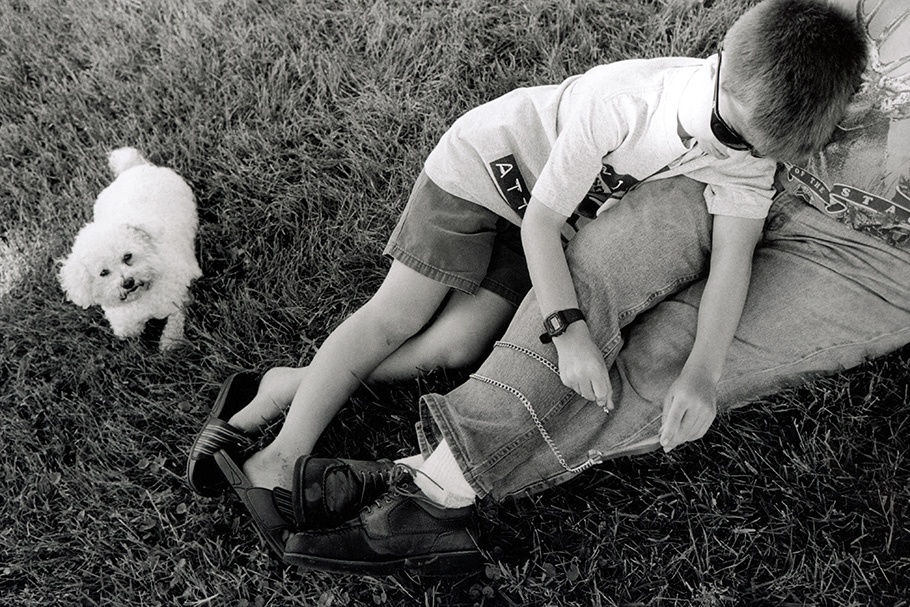
Steven Hirsch with his son Jonah, 10, and their dog Lacey.
Irvine, California, 2001.
20050316-shames-mw10-collection-015
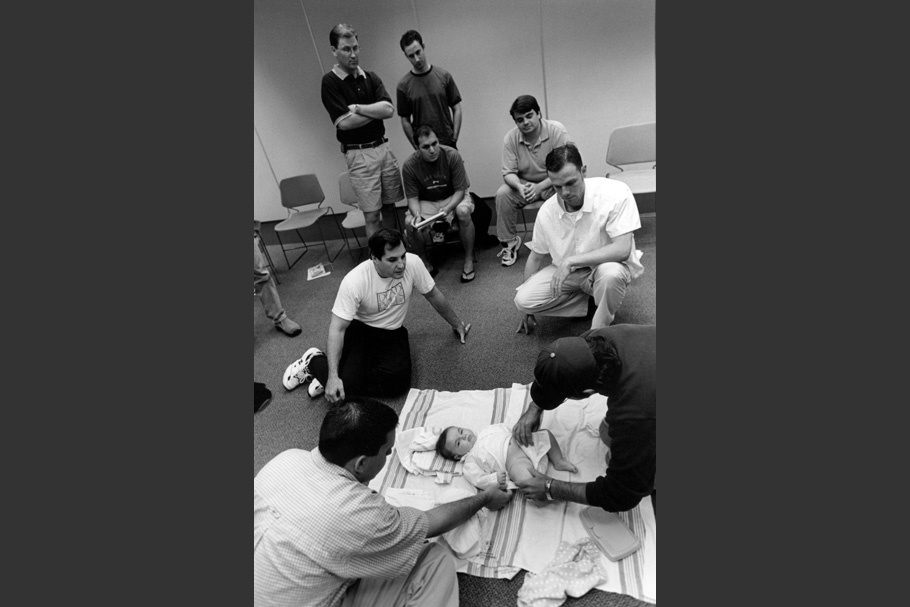
During Boot Camp for New Dads at Saddleback Memorial Hospital, new dads learn the basics—how to change a diaper, calm a crying infant, and make a warm bottle—from veteran dads.
Laguan Hills, California, 2001.
20050316-shames-mw10-collection-016
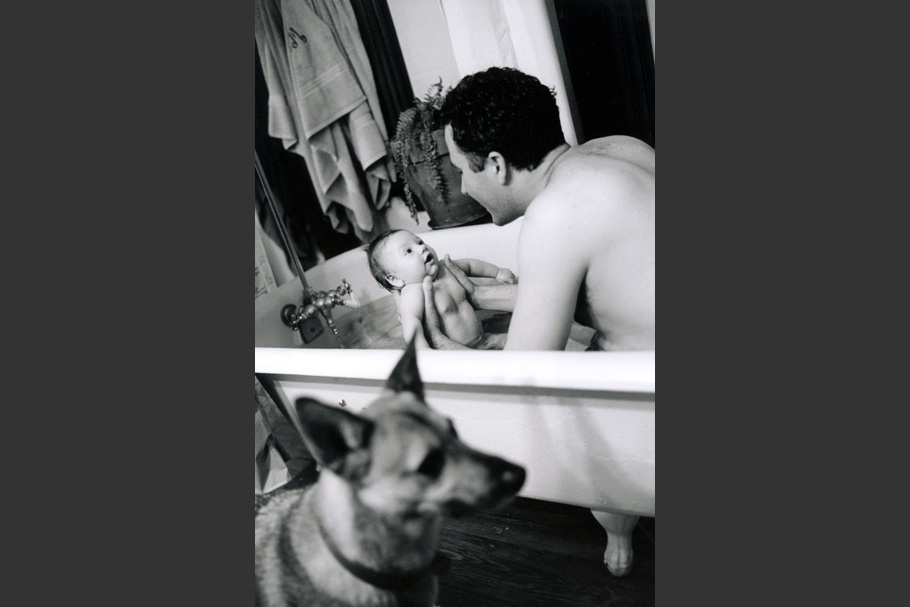
Teny Oded Gross bathes his two-month-old son, John Alexander Gross.
(Ella J. Baker House)
Boston, Massachusetts, 2001.
Stephen Shames creates photo essays on social issues for magazines, books, advocacy organizations, and art museums. Two of these essays, Outside the Dream and Pursuing the Dream, were published as monographs by Aperture. A third, Friends of the Children, became a film directed by Shames. His recent projects include portraits of multiracial Americans; “Lost Boys,” a compilation of work spanning four decades; street children; AIDS orphans; children affected by war; and “America Smells Like Fresh Bread,” a look at American values. In 2002, Shames founded the Outside the Dream Foundation to educate AIDS orphans, street kids, and vulnerable children in Uganda and India.
Shames’ images are in the permanent collections of the International Center of Photography, the National Portrait Gallery, the Museum of Photographic Arts, The University of California’s Bancroft Library, the San Jose Art Museum, and the Museum of Fine Arts, Houston. He has received awards from the Kodak Crystal Eagle for Impact in Photojournalism, Leica, the International Center of Photography, and the Robert F. Kennedy Journalism Foundation.
Stephen Shames
“I depend on my dad like a rose depends on water and sun.” Boy, first grade
“When I’m a big daddy, I’m going to blast the leaves out of the gutter, clean up the house, if it’s dirty, and cook for daddy and mommy.” Boy, four years old
Low-income dads are largely absent from public policy discussions. The government, when it intervenes at all, directs its programmatic and financial support toward mothers. When men are discussed, they are often portrayed negatively—as dead-beat dads, for example—while positive programs that assist struggling, low-income dads are rarely mentioned. Society will throw men in jail for not paying child support before helping them acquire a job or the parenting skills that would enable them to provide for their children.
But many men yearn to be closer to their children, and fathering programs help them achieve this goal by teaching parenting and job-related skills and connecting them with their families and community. Even men society might consider beyond redemption—men who belong to gangs or men who have a record of abuse—can become responsible fathers with the support of parenting programs.
The El Joven Noble Program (The Noble Young Man) in East Los Angeles helps young Latinos develop responsible, respectful relationships with their partners and their families. The program provides practical lessons in the skills required for living independently in the community and fosters a positive cultural identity through the arts and recreational activities. Graduate Jose Govea, one of the subjects in this exhibition, no longer is afraid of hugging his seven-year-old son, Edgar, something that he was not able to do before participating in the program.
Across the country, in Indianapolis, the Father Resource Program reaches out to young, undereducated, and underemployed fathers, helping them to earn a degree, find steady employment, and build self-esteem. The program helped Steve Dycus, photographed sharing an ice-cream bar with his son Dashawn Williams, learn to be part of his son’s life in a close, emotional way.
Meld, a family service organization in Minneapolis, helped Zah Tift, shown feeding his daughter in the car, thrive in his role as stay-at-home father. The organization also reaches out to the growing immigrant community in the Twin Cities region. A. E. Moun, Hmong coordinator at Meld, is pictured eating dinner with his children after a day picking vegetables in the fields.
The images in this exhibition record the success of these programs in bringing fathers and children together, while strengthening families and communities.
—Stephen Shames, March 2005